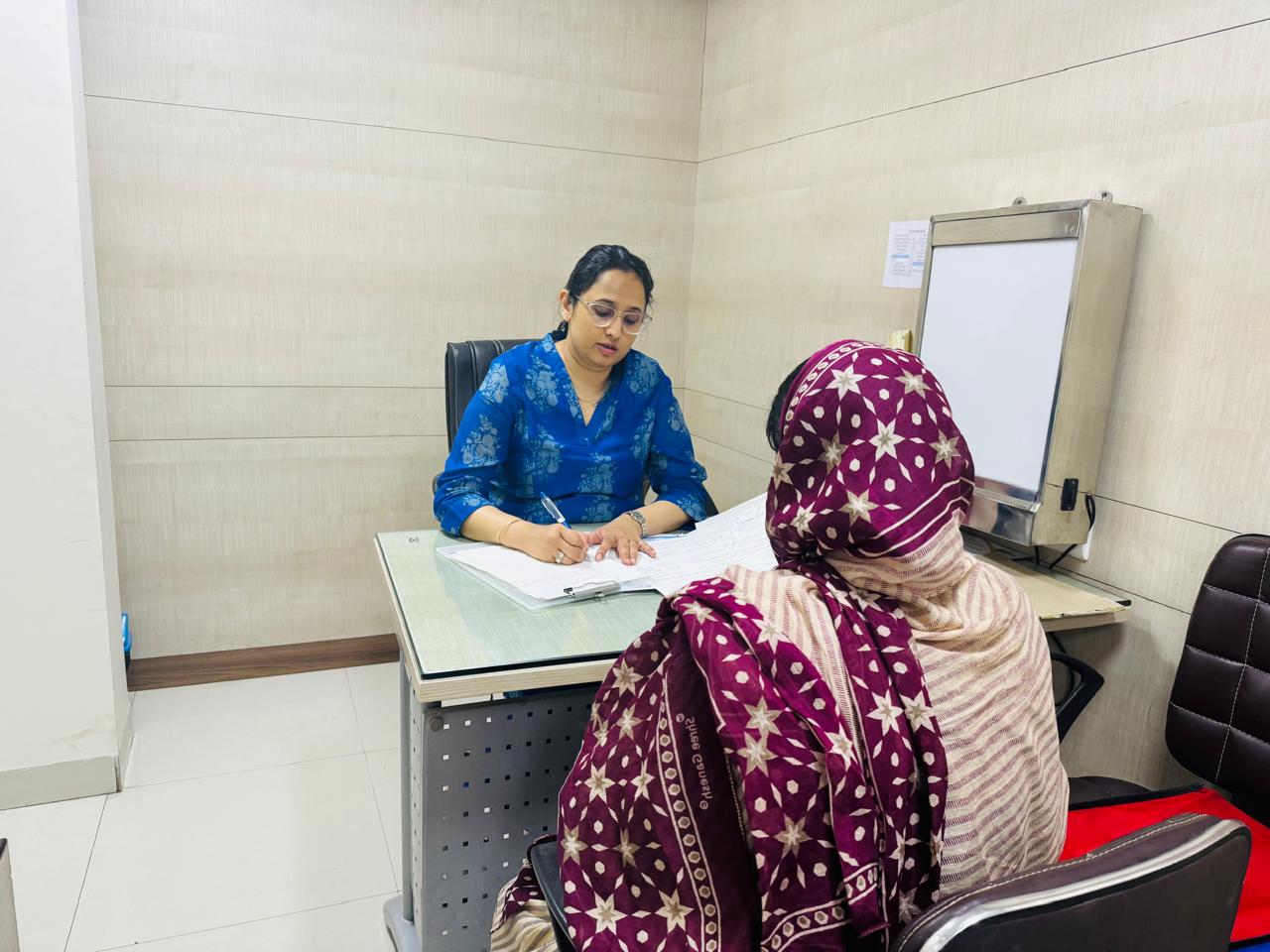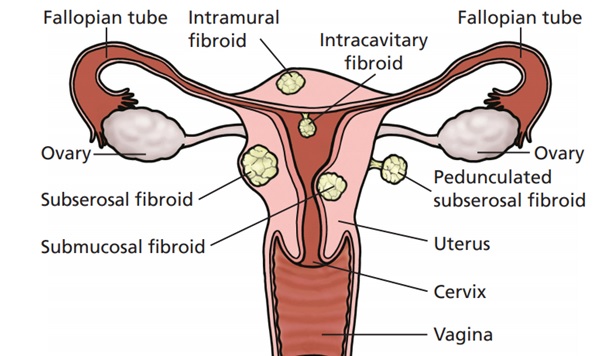The formation of fibroids in the uterus can be highly concerning. To ensure that it does not affect your reproduction health, get it treated immediately by an expert.
Visit Dr Kriti Agarwal, a well-known name in fibroid removal treatment in Kolkata. Dr Kriti Agarwal has 14 years of experience as a gynaecologist and specializes in myomectomy. It is an important surgical procedure that is targeted to remove uterine fibroids. Whether you have a single tumour or multiple growths, Dr Kriti Agarwal can offer efficient assistance in curing them.
Detecting the presence of fibroids in your uterus can be a bit confusing. However, before approaching the doctor, you should understand the symptoms of fibroid development:
As an experienced and skilled gynecologist, I offer comprehensive and top-quality IUI treatment in Kolkata. I understand that fertility issues can be emotionally challenging and stressful, and I strive to provide personalized care and guidance to every patient. With a patient-centered approach and advanced techniques, I ensure the best possible outcomes for couples seeking to conceive through IUI. My team and I are committed to providing a comfortable and supportive environment for our patients. Contact me today to schedule a consultation and learn more about how I can help you achieve your dream of parenthood.


When looking for fibroid removal treatment in Kolkata, you may find multiple sources. However, Dr Kriti Agarwal is well-experienced and can provide sympathetic support in removing the fibroids. She has been a top choice among a wide range of patients for the following reasons:
No more worries about painful fibroids ruining your life. Book a session with Dr Kriti to get the right treatment.
Fibroids are common, non-cancerous growths that develop from the muscle of the womb and may vary in size and position within the womb.
Fibroids are very common: 20-50% of women over the age of 30 years may have one or more. Fibroids do not always cause problems and many women may never even know they have them. Fibroids may be often found by chance when other symptoms are being investigated.

Large fibroids, or those that are mostly on the outer surface of the womb (subserous fibroids) are more likely to cause pressure symptoms.
Fibroids that mostly face inwards (submucous) are more likely to cause heavy periods and may cause fertility problems.
Fibroids can also be associated with risks in pregnancy including miscarriage, premature labour and an increased risk of a Caesarean section delivery due to the baby lying in an unconventional position e.g. bottom first or obliquely. There is also a higher risk of heavy bleeding during pregnancy and after the baby has delivered.
These are usually recommended:
Mefenamic acid tablets can provide pain relief due to cramps and tranexamic acid tablets help to reduce the blood loss. They need to be taken with each monthly bleed.
Hormonal medication These methods are not suitable if you are actively trying to get pregnant, but can be used temporarily while planning fertility treatments or before surgery.
1.Combined oral contraceptive pill :
This pill acts on the lining of the womb and may help to reduce the heavy bleeding that fibroids can cause, and may also prevent the fibroids from getting bigger.
2.Progestins
Progestins are synthetic versions of the hormone progesterone and can help by reducing menstrual blood loss, preventing the fibroids from getting bigger as well as helping them to shrink. Progestins can be taken in the form of an oral pill or an intrauterine coil system called the Mirena.
3.GnRH analogue or depot inj
This medication brings on a temporary menopause which can help to shrink the size of the fibroids and stop the periods. This medication is also sometimes prescribed before fibroid removal surgery to reduce the blood loss during the operation. Side-effects such as hot flushes, difficulty sleeping, dryness in the vaginal area, and also bone loss (early osteoporosis) maybe noticed. They are not recommended indefinitely and usually need to be stopped after about six months.
4.Ullipristal acetate
is a daily tablet taken by mouth for three months at a time (one course). It is an anti-progesterone hormone medicine that can stop fibroid cells from dividing. Eventually the cells die and the fibroid shrinks. Period bleeding should reduce by 90% during the treatment course, which is similar to GnRH analogue treatment. it does not produce menopausal side-effects. It can be used before surgery as a single course or repeatedly for women for whom surgery is not suitable. It must not be used by women with liver problems. In some women the womb lining can thicken abnormally but this usually disappears when the treatment ends. Both liver tests and womb lining checks are done for all patients on Esmya.
There are 2 options
1. Myomectomy or removalof fibroid
2. Hysterectomy or removal of womb.
1. A myomectomy is an operation to remove fibroids, whilst retaining the womb, fallopian tubes and ovaries. Whether a myomectomy is the best choice or not for you depends upon your age, the need to preserve fertility, the size, number and positions of your fibroids. Myomectomy is mostly recommended for women who wish to retain their fertility.
2. Hysterectomy, which involves removal of the womb and all the fibroids in it. A hysterectomy may be recommended for women who have completed their family and no longer wish to try to get pregnant, if they have large fibroids and want a permanent solution. This is guaranteed to stop period bleeding and is a good way of relieving pressure off the bladder.
Copyright @ , Dr. Kriti Agarwal.